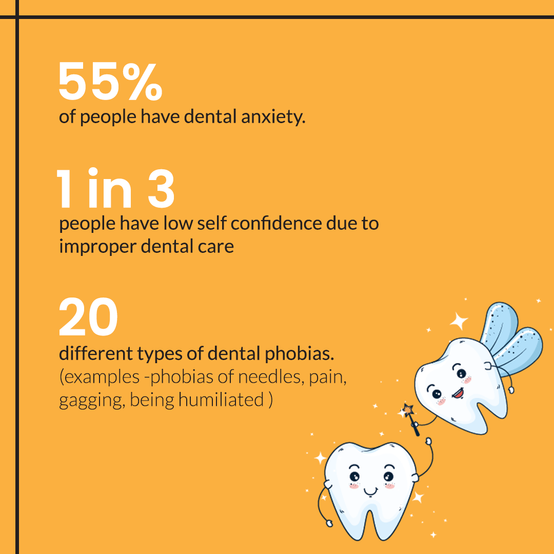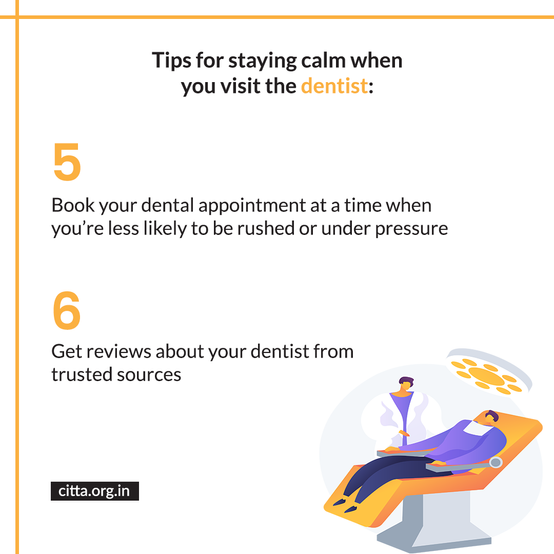I know what you’re thinking.
Just because dental and mental rhyme, doesn’t mean they’re related.
Well, allow me to surprise you.
There are SEVERAL paths that link the two very different destinations- oral health and mental health.
You’d never have thought not brushing at night could take a toll on your mental health. I mean, cavities, yeah sure, we made our peace with that. But mental health?
Lack of self and dental care, especially during childhood, can lead to a lack of self-esteem that has long-lasting effects.
Psychologists believe that children with visually poor oral health and impaired smiles are more likely to perform poorly at school, be socially excluded and have lower job prospects than their peers with visually good oral health and healthy smiles. Significant associations were found between school performance and self-esteem for these children.
Most people (more than 55%) have some amount of dental anxiety, due to anticipated pain or fear of an unknown procedure.
Dental phobias are more specific. Common examples include phobias of needles, pain, gagging or being humiliated. If you have a dental phobia, the terror you feel is so strong that you avoid the dentist until either the physical pain or the emotional burden of the phobia becomes overwhelming.
There are at least 20 different types of dental phobias.
Tips for staying calm when you visit the dentist
Share your fears. If you're tense or anxious, tell your dentist and the dental staff. Expressing your concerns will not only help you feel more at ease, but it will also allow the dental staff to address your concerns and help you feel more comfortable.
Focus on breathing regularly and slowly during dental procedures. When people are nervous, they tend to hold their breath, which decreases oxygen levels and further increases feelings of panic. A focus on slow, regular breathing helps reduce stress levels.
Listen to some tunes. If the sound of the drill bothers you, bring along your favorite music and earphones.
Watch what you eat and drink. Avoid caffeine before a dental appointment, as it would heighten your anxiety. Eat high-protein foods which – unlike sugary foods – produce a calming effect. As a rule, unless you’re specifically asked to, never go for a dental visit on an empty stomach.
Use hand signals. By agreeing on hand signals to communicate with your dentist, you feel less powerless. When you feel uncomfortable, signal the dentist to ease off or stop the procedure.
Choose a low-stress appointment time. Select a time for your dental visit when you’re less likely to be rushed or under pressure. This might mean a Saturday or an early-morning appointment.
Get some good reviews. If you’re looking for a dentist, ask friends and relatives for recommendations. A glowing review about a dentist from someone you trust can help reduce your anxiety.
While this may not completely eliminate your anxiety or phobia, it will certainly make you feel more at ease during your dental visits.
Simple steps of dental care, instilled right from childhood, are also steps taken toward mental health care.










Comments